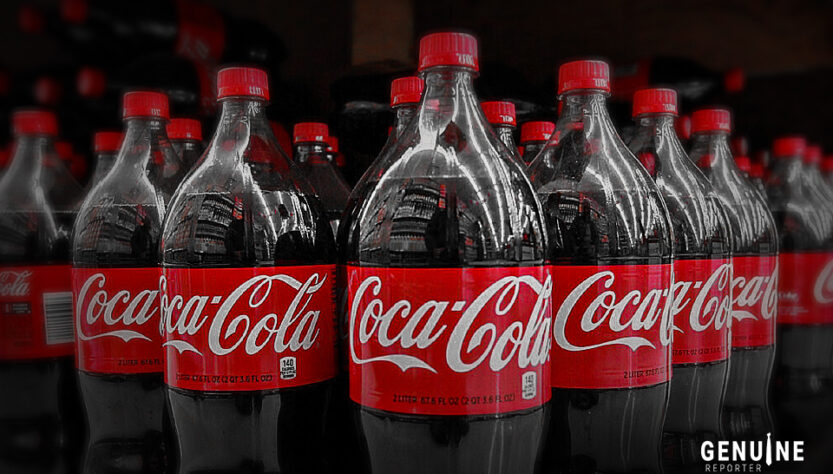Shares of the company were up less than 1% in the previous morning’s trading.
Here’s what Coke reported compared with what Wall Street was anticipating, which was based on a survey of analysts by Refinitiv:
- Earnings per share: 68 cents adjusted vs. 64 cents expected
- Revenue: $10.96 billion adjusted vs. $10.8 billion expected
However, Coke reported first-quarter net income determinable to equity holders of $3.11 billion, or 72 cents per share, up from $2.78 billion, or 64 cents per share, in the previous year.
Also, the beverage giant gained 68 cents per share, and net sales rose 5% to $10.98 billion, excluding restructuring charges, certain tax matters, and other items.
Organic revenue, which strips out the impact of investments and dispossession, surged 12% in the quarter, driven largely by higher prices on Coke’s beverages.
Just like other companies, Coca-Cola has also been hiking prices to mitigate the impact of inflation. Most of the first quarter’s price increases were administered in the previous year, although executives said the firm has raised prices further across operating segments during the first three months of this year.
Although, the higher prices had a muted effect on demand for Coke’s beverages.
Moreover, pricing and currency changes grew by 3% in the quarter, which excludes the company’s unit volume. Also, volume in North America was flat, while in Europe, Africa, and the Middle East it fell 3%. On the other hand, demand was strong in Latin America and the Asia-Pacific region.
Coke reported a 3% increase in volume for its sparkling soft drinks unit. Its flagship beverage had a 3% increase in volume, while Coke Zero Sugar saw an 8% increase.
Furthermore, the company’s water, sports, coffee, and tea divisions exhibited volume growth of 4%, fueled by strong demand for its coffee and bottled water. Coke’s coffee business reported that its volume increased by 9%, while its water division increased by 5%.
Turkey has acquired a higher percentage of demand for its tea. However, an earthquake in the country hurt demand for its tea, which saw a volume downshift of 3% in the quarter. The volume of its sports drinks, including Body Armor and Powerade, also declined.
During the downfall of its sports drinks and beverages, volume for Coke’s juice, dairy, and plant-based beverage units was flat. The suspension of its Russian operation was countered by high sales of its Fairlife dairy brand in the United States.
John Murphy, CFO of the beverage giant, told analysts on the company’s conference call that “Coke anticipates commodity inflation to influence its cost of goods sold by the mid-single digits in 2023. Oil spot prices and freight costs are low, but other commodities’ higher prices are sticking around for longer.”
He also said that the company is maintaining its financial flexibility amid its ultimate tax battle with the IRS.
The United States Tax Court determined in November 2020 that the corporation owes $3.4 billion in taxes. Although, that figure has since been slashed to $1.6 billion.
Murphy said Coke is waiting for the tax court to give its final verdict on the case, so the company can move further in the appeals process.
“Overall, we don’t expect the tax dispute to have a bearing on our ability to deliver on our capital allocation agenda and drive long-term business growth,” Murphy stated.
- Published By Team Genuine Reporter

